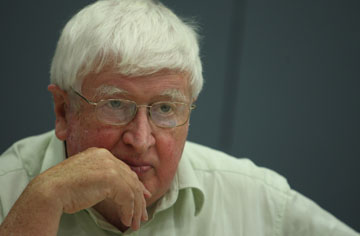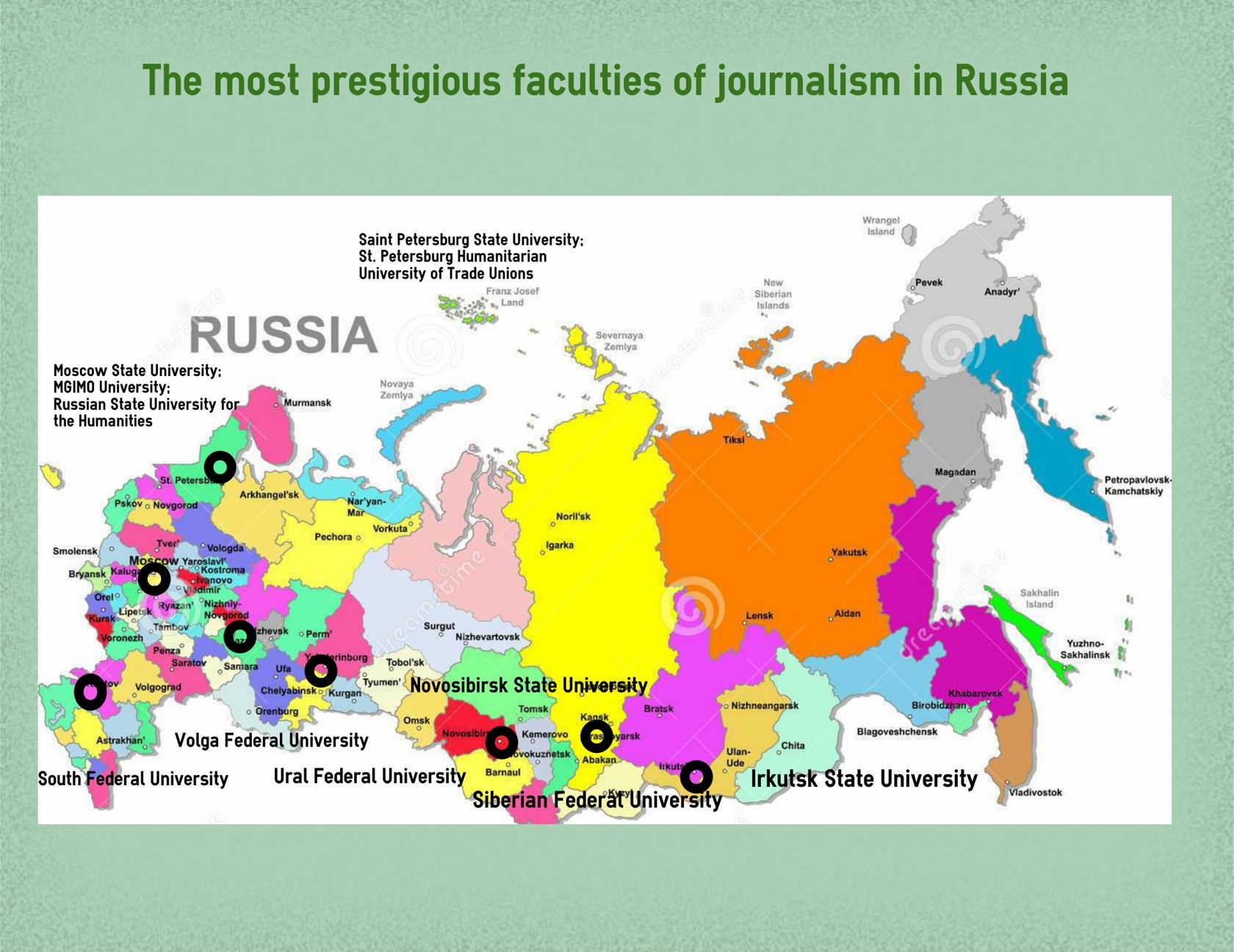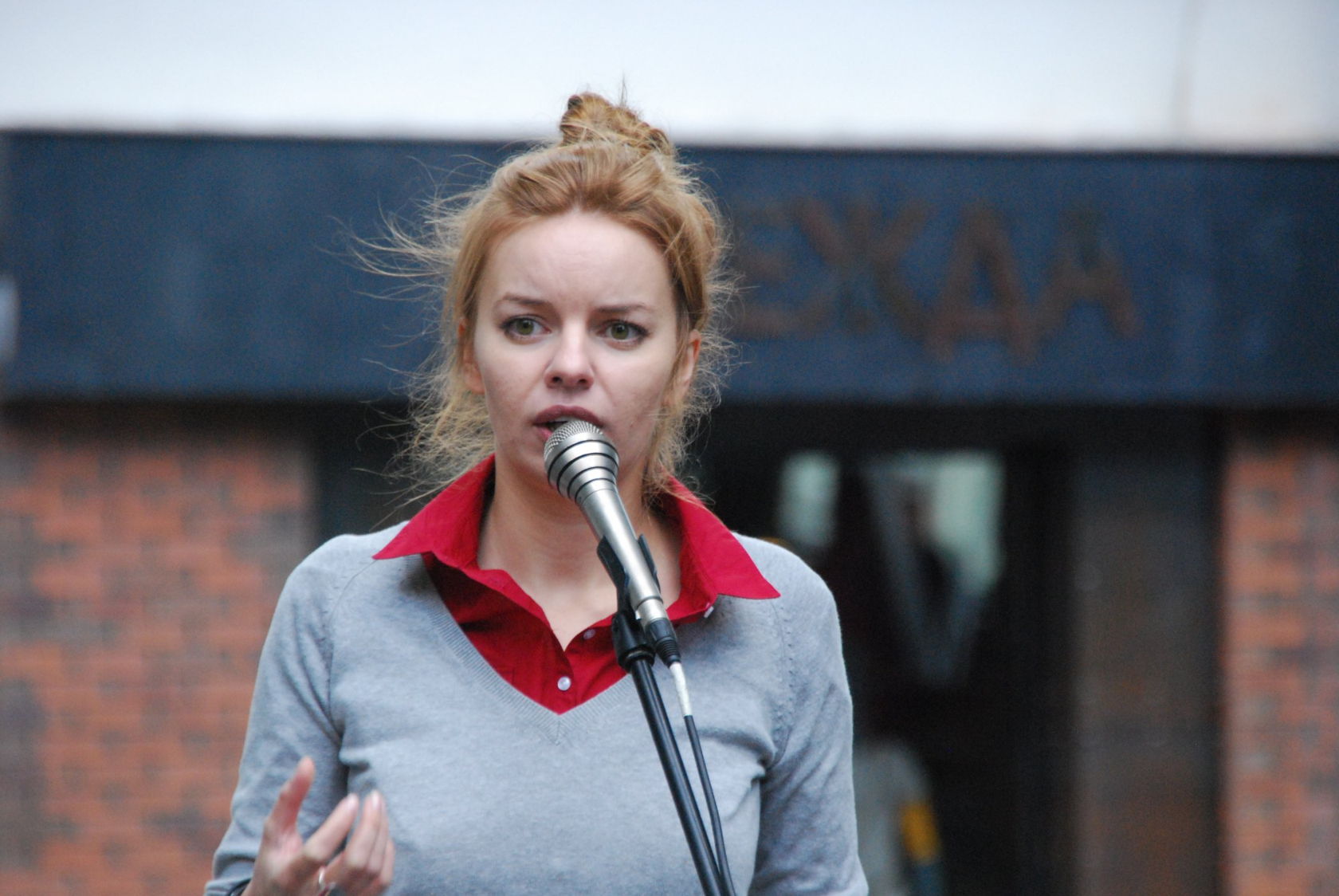Profession of journalist
Holders of information
Journalists are people who everyday have a deal with a huge flow of information. They generate our reality and form public opinion. But nowadays journalism is faced with the challenges of the digital era. What main consequences of the buttle between traditional media and information technologies? Do we see the decline of journalism? We, bachelors of journalism, try to explain our positions about our future job.
"We live under a government of men and morning newspapers".
Wendell Phillips
Wendell Phillips
Researches of journalism
The question about future of journalism is worried many generation of theoreticians and practitioners of media. Despite the diversity of opinions, they all agree on one thing: journalism will continue to exist in the future. Journalists will continue to influence public opinion. From the beginning of "television era" we have been losing ability to think critically. To support Herbert Marshall McLuhan said: "To educate means to develop insensitivity to the television".
Denis McQuail formulated features of the Internet, which cause an incentive for changes in journalism:
1) low barriers or their complete absence for entering in personal space;
2) individualization of audiences, reduction of the mass audience;
3) mobility of audience;
4) multimedia;
5) interactivity;
6) decrease of control and regulation;
7) increase the diversity of suppliers and supply;
8) incentive to globalization.
Alvin Toffler also said that modern media, both print and electronic, totally incapable to carry the whole information overload and do not ensure cultural diversity. In civilization of the third wave begins to dominate interactive media which provide maximum diversity, and even personal information requests.
Denis McQuail formulated features of the Internet, which cause an incentive for changes in journalism:
1) low barriers or their complete absence for entering in personal space;
2) individualization of audiences, reduction of the mass audience;
3) mobility of audience;
4) multimedia;
5) interactivity;
6) decrease of control and regulation;
7) increase the diversity of suppliers and supply;
8) incentive to globalization.
Alvin Toffler also said that modern media, both print and electronic, totally incapable to carry the whole information overload and do not ensure cultural diversity. In civilization of the third wave begins to dominate interactive media which provide maximum diversity, and even personal information requests.
"Journalism is not a sacred activity, but continuously appear martyrs, who are worthy of glory or sorrow. While martyrdom is not a professional requirement".

Denis McQuail
Why journalism matters?
Journalism is one of the oldest professions in the world. People always interested in getting truthful information. That is why, the main function of journalism was to give reliable information for audience. But nowadays some people say that today journalism doesn't matter and can be disappear like a profession.
There is a deep ocean of information around us. But, how I said before, people want to get truthful information. And who can provide this sort of information? Journalists. No doubt, technological progress doesn't stop. And future of new journalism belongs to robots. It allows save time and money for media. But, on the other hand, we need not only get information, but make analyses and see consequences. Here on this step journalists should be included in the work. So, what I want to say, that from giving information the main function of journalism has moved to analyze and help to understand and extract necessary from communication abundance. Therefore journalism will survive.
Some theorists of journalism say that this profession likes a civil institution should have oppositional stance toward authority because journalists must serve interests of society. Journalism in this way gives a chance to get other information which can be different from official. Also reporters have an opportunity to be there, where ordinary citizens are not allowed, and to get secret facts. Moreover, journalists, helping of their job, can uncover injustice.
Journalism matters like a social institute, a part of our culture and a key of understanding processes in a new world. Journalism matters not only for giving information (true information, first of all), but for analysis and interpretation of facts. Journalists are our teachers, our mediators and friends who should help us to make our lives better.
There is a deep ocean of information around us. But, how I said before, people want to get truthful information. And who can provide this sort of information? Journalists. No doubt, technological progress doesn't stop. And future of new journalism belongs to robots. It allows save time and money for media. But, on the other hand, we need not only get information, but make analyses and see consequences. Here on this step journalists should be included in the work. So, what I want to say, that from giving information the main function of journalism has moved to analyze and help to understand and extract necessary from communication abundance. Therefore journalism will survive.
Some theorists of journalism say that this profession likes a civil institution should have oppositional stance toward authority because journalists must serve interests of society. Journalism in this way gives a chance to get other information which can be different from official. Also reporters have an opportunity to be there, where ordinary citizens are not allowed, and to get secret facts. Moreover, journalists, helping of their job, can uncover injustice.
Journalism matters like a social institute, a part of our culture and a key of understanding processes in a new world. Journalism matters not only for giving information (true information, first of all), but for analysis and interpretation of facts. Journalists are our teachers, our mediators and friends who should help us to make our lives better.
Thinking about journalism education
"Go to study journalism for five years in the university is an unnatural idea, because it is applied profession as the driver or seamstress. The more you driving, or sewing trousers, the better it turns out. What should really study is to learn from the experience of practitioners correspondents".
What is journalism education? To this question Iwould like to answer like one Russian journalists: such education does not exist. One of the best masters in this field - Vladimir Pozner always says in his lectures that it should be banned to get a journalism education after high school. You must first get master profession where knowledge is not so abstract. Posner, for example, educated as a biologist.
I've never seen a person who was happy because he studied at the faculty of journalism. I know a lot of people who regretted about their choice. And I'm one of them. But I was warned.
My four years at University were good, but they brought me little good. Still, the journalist has no reason to know, he needed to do. After all, you know what researchers said in their article, but skills will not increase. A good journalist is a person who does a lot. Let it is bad, but it will certainly be good. And, in the end, person becomes the master.
I very much suffered because of a wrong choice, but then decided that was silly. Because then it should have been. So I got to where was supposed to be. Yes, for 4 years I did a stunning career in journalism as a dream. I've never learned English. I didn't read as many books as I wanted. But I found a best friend. And by the end of 4 courses I realized that even a failed attempt is a step up. Thanks to everyone who was there.
Narina Georgyan
I've never seen a person who was happy because he studied at the faculty of journalism. I know a lot of people who regretted about their choice. And I'm one of them. But I was warned.
My four years at University were good, but they brought me little good. Still, the journalist has no reason to know, he needed to do. After all, you know what researchers said in their article, but skills will not increase. A good journalist is a person who does a lot. Let it is bad, but it will certainly be good. And, in the end, person becomes the master.
I very much suffered because of a wrong choice, but then decided that was silly. Because then it should have been. So I got to where was supposed to be. Yes, for 4 years I did a stunning career in journalism as a dream. I've never learned English. I didn't read as many books as I wanted. But I found a best friend. And by the end of 4 courses I realized that even a failed attempt is a step up. Thanks to everyone who was there.
Narina Georgyan

"I graduated from journalism MGIMO. And this education is now a very great help. And this is not some kind of profiled discipline or specialized fundamental courses.This is a very important structural things in knowledge for me. Roughly speaking, you immediately realize that you look for in Google.In addition, we had a fairly strict attitude to learning, and the words "You see, I work" was, rather, an aggravating circumstance, rather than the reverse".

Nikita Belogolovtsev
TV channel "Rain"
For 4 years here I've been listening a lot about disappointment in journalism education. As for me, I've never regretted that I studied here. Journalism, perhaps, the most abstract profession. No, I made a mistake. Journalism is not profession, it's a lifestyle. You cannot be a good journalist from 10 a.m. to 6 p.m. You should always be in information area. So, if you don't want to live in this way, faculty of journalism is not for you. No one can teach you to be journalist.
About disadvantages of journalism education tell almost all, like on our university also in Moscow or St. Petersburg. Firstly, we almost have not had practice. But if you want you can find practice, for example, like a freelancer. Secondly, abstract subjects like philosophy and others. But if you want to get specific knowledge welcome to economic faculty. Of course, journalistic education should be more specific in case of making content for different platforms. But without theoretical bases it would not be academic education.
It is not a school where you had strict plan. Here you are independent person with your brain and your ambitions. As for me, thanks to university I've been in Spain, in school of «Russian Reporter». I have experience, I have right to compare. Thanks to these abstract disciplines I started to get involved in philosophy and political science. The main lesson for me was never afraid and set goals. I've met a lot of interesting people who, anyway, influenced me.
To sum up, for 4 years I've totally convinced that want to be a journalist. It's my hobby, it's my lifestyle.
Julia Stasishina
About disadvantages of journalism education tell almost all, like on our university also in Moscow or St. Petersburg. Firstly, we almost have not had practice. But if you want you can find practice, for example, like a freelancer. Secondly, abstract subjects like philosophy and others. But if you want to get specific knowledge welcome to economic faculty. Of course, journalistic education should be more specific in case of making content for different platforms. But without theoretical bases it would not be academic education.
It is not a school where you had strict plan. Here you are independent person with your brain and your ambitions. As for me, thanks to university I've been in Spain, in school of «Russian Reporter». I have experience, I have right to compare. Thanks to these abstract disciplines I started to get involved in philosophy and political science. The main lesson for me was never afraid and set goals. I've met a lot of interesting people who, anyway, influenced me.
To sum up, for 4 years I've totally convinced that want to be a journalist. It's my hobby, it's my lifestyle.
Julia Stasishina
"I still believe that if your aim is to change the world, journalism is a more immediate short-term weapon".
Tom Stoppard
Tom Stoppard
by Narina Georgyan, Julia Stasishina

